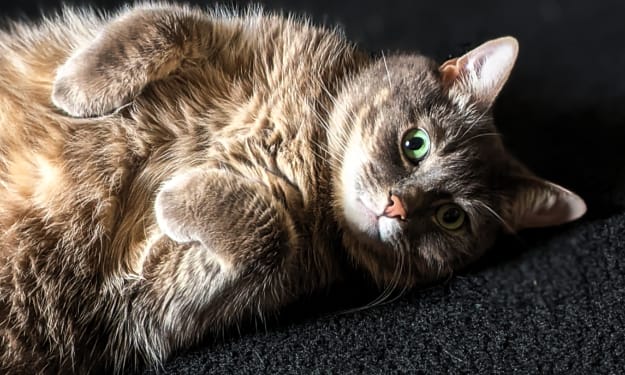
I'd come to see myself as a wildfire, dangerous to the touch and innately destructive. Hazardous, unsettling, and beautiful to watch.
Sitting among friends at a bar one night, I professed to to one friend I was comfortable confiding in my frustration over the fact that, inside of a year, four men had spouted the words 'I love you' in my direction. The phrase was losing meaning, and with every iteration a relationship that I valued was decimated. The confession often came too soon, and was offered without consideration of my very clear assertion that attachment wasn't something I had any interest in.
Recalling my own thought process at a younger age, it seemed absurd to label any of this problematic. The version of me who trudged through mid-adolescence was desperate for lasting affection, pining in the direction of boys who might fall prey to the same ideal. But I wasn't that little girl anymore; I'd gained traction when it came to self-efficacy. External affirmations were appreciated, under the right circumstances, but not necessitated. The validation I'd once sought through the affections of others had been replaced by a much healthier aspiration. The weight of the importance these men put on their connection to me was discomforting; it was a direct indication of my upper hand in the situation, and thus my capacity to cause harm. Though they couldn't be blamed for expressing themselves how they chose, I yearned for a much less complex dynamic. My preference was that their happiness would depend as much on me as my happiness depended upon them: not at all.
My friend was sympathetic. Without hesitation, she offered her own perspective: it was the manic pixie dream girl trope.
A quick search will show you that the concept of a manic pixie dream girl isn't something that can be transferred from screen or literature into reality. The manic pixie dream girl exists solely for the purpose of encouraging her romantic counterpart to loosen up, live on the edge, and embrace all that life has to offer. Her personal aspirations are either expected to be ignored by the audience, or they simply do not exist. She's often energetic and outgoing, brimming with quirkiness, and eccentrically available.
It was nothing short of ironic that the men I typically found myself attracted to were, in fact, the brooding and serious type.
Since the term 'manic pixie dream girl' was coined, it's come to have a negative association. Because the manic pixie dream girl is so one-dimensional and her internal life is essentially non-existent, it's a trope that's been labelled as offensive, delusional, and misogynistic. No real human being could ever meet the requirements of the manic pixie dream girl. But that isn't to say men (and sometimes women) don't treat others as though they do fulfil the role of the manic pixie dream girl in their lives.
Perhaps it's through a fault of my own, a tendency to close off any insight to my internal life (in a counterproductive attempt to have these men not become so invested) that I've encouraged the illusion. Arrogantly, the assumption seems to be made that because I haven't clearly outlined my larger aspirations or my lack of intention to fix all of their emotional problems with my presence in their lives, my goals must align with their own.
Silence is perceived as complacence.
In the cases where it is minimally understood that I have an aversion to the most traditional types of connections, the default secondary line of thought is either that my mind can be changed, or that there is something to fix. Both of these suggestions border on offensive.
My mom's boyfriend wasn't the first person who suggested this tendency of mine stemmed from a place of fear, but his thoughts on the matter were the first which really brought me to consider that as a possibility. There was, I realised, an undeniable source of fear in these encounters. But it wasn't a fear for myself, it wasn't a fear of getting hurt or being left, or even of being emotionally vulnerable. It was a fear that, when I inevitably found my attention wavering, I would have to cause another person pain.
The solution is obvious, and rather simple. I could stop engaging in these types of dynamics entirely. But it would be misleading to suggest that the outcome of every romantic endeavour I've taken to has ended the same way. And I would be toeing the line of dishonesty if I were to suggest that I, too, haven't occasionally found myself caught up in the excitement of it all. At twenty-three years old I am still an expert in the field of 'school-girl crush'; despite my experiences, I remain tied to actions of blatant flirtation and exhausted romantic notions. I am entirely unwilling to change who I am. The heat keeps me warm and alight, and a fire cannot exist without being hot, cannot thrive without spark and flame and tinder.
In some sense, in some underlying way I would probably like to deny, it's also possible that I'm hoping one day my desires will align with the societally normalised view of relationships. A small part of me would like to believe that I'll cross paths with the person who won't lose my interest and who will, miraculously, meet my unspoken and completely abstract expectations.
About the Creator
Tia Foisy
socialist. writer. cat mom.






Comments
There are no comments for this story
Be the first to respond and start the conversation.